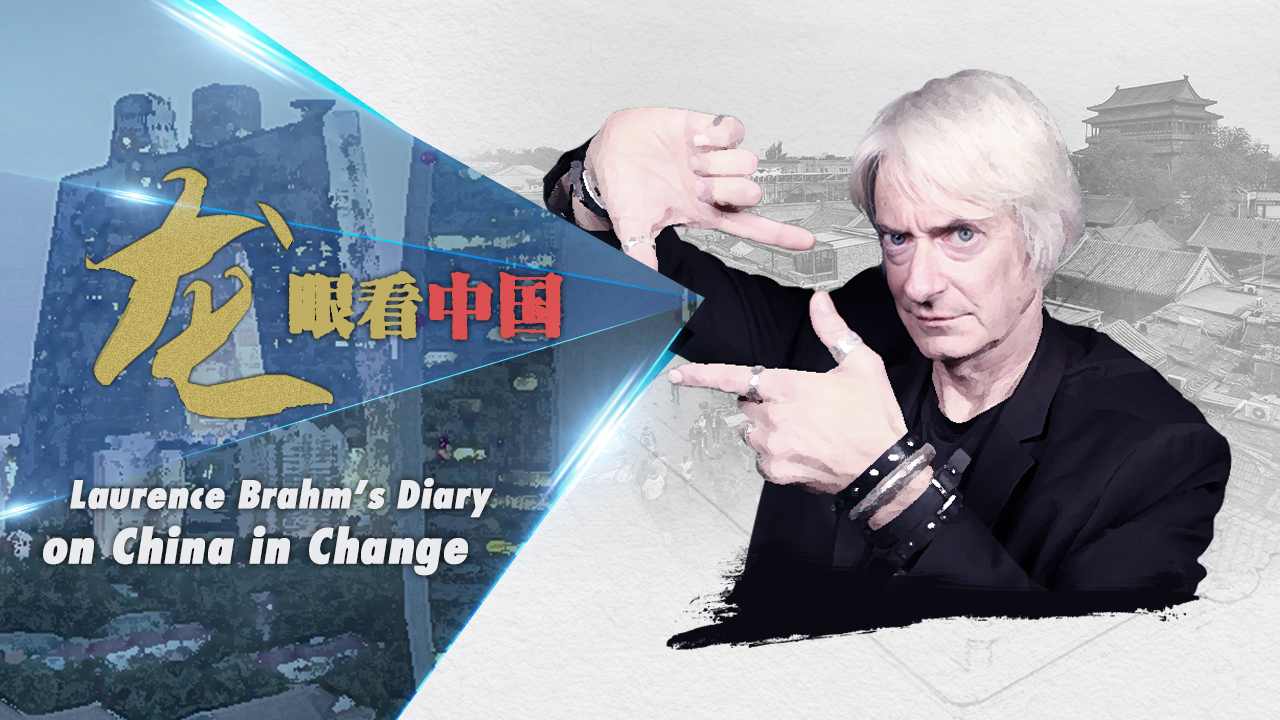
Opinions
09:01, 17-Dec-2018
Creativity at core of competitiveness in China's youth
Updated
08:49, 20-Dec-2018
Laurence Brahm
04:04

Editor's Note: As a lawyer, policy adviser, filmmaker and social enterprise pioneer, Laurence Brahm is not only a keen observer but an active participant in China's reform and opening-up. "Laurence Brahm's Diary on China in Change" is a special series dissecting the colossal changes Brahm has witnessed in his 37-year stay in China. In the fifth episode, Brahm shares his views with CGTN on China's young people.
CGTN: What has reform and opening-up brought young Chinese people?
Brahm: China's reform and opening-up has brought opportunity for change and personal growth to Chinese teenagers. They are totally interconnected with everything that's happening anywhere in the world in terms of trends, art, music, lifestyle... There are no barriers in terms of their access.
It's given them a material foundation to go beyond the material; it's given them an opportunity to be able to be part of the rest of the world; and it's given them the opportunity in the next generation to even be leaders in an integrated, dynamic, and synergistic planet.
Because all of this stuff going on right now in the United States with nationalism, with populism, with de-globalization and anger, all this stuff is polarizing the planet. But I do believe at the core of Asian values is a belief in harmony, synergy. Black and white are not opposites. They are part of an integrated whole.
And I think that young people from China, from India, from Southeast Asia, South Asia, have this at the core of their value system. It's in their DNA. And if we can combine that with the technologies, I think we could have a very different planet in the future and get away from some of these antagonistic zero-sum game – only one country is No.1, views which are only going to drag us backward.
CGTN: How do you compare the Chinese educational system with that of the West?
Brahm: I would probably say that the Chinese educational system, from elementary school through high school, is better than the Western educational systems – more solid in terms of math, sciences, even humanities. But the higher level of education, I think that there are still some very big gaps. And I think that people are aware of that. Chinese [students] want to go overseas, they want to get the best of education, particularly Master's degree, Ph.D., that level of research.
And from that perspective, I think that those students who are coming back, they will be a very powerful force for the change of China and the future. It's not only a global economic power but is one that has a new soft power.
CGTN: Many argue that Chinese teenagers, who have grown up under the one-child policy, lag behind their foreign counterparts in creativity and self-care. What's your take on this?
Brahm: In many ways, China is on the cutting edge of innovation and creativeness. The fundamental shifts in the past 40 years do not come in a society that doesn't have creativity and innovation. The government at the top is responding to popular demands and all kinds of infiltration of information and changes in ideas that are coming up from all directions. It is responding more than it is necessarily commanding and leading. And in this respect, I think we have to see that Chinese society has a lot of creativity and innovation.
CGTN: How can the competitiveness of young people in China be improved?
Brahm: China is a fascinating country, because it integrates; it is the melting pot; it takes ideas. What you have in China is you have a nation and people who are constantly reinventing themselves. I think that is where this incredible creativity comes in and again I turn to the young generation because I see them more prepared to reinvent themselves here than anywhere else in the world. And it's already happening.
I think the more that young people can be working together, can be integrating, can be communicating, can be exchanging ideas and can be realizing that at the end of the day humanity, they don't care whether you're in China, you're in America, you're in Europe, you're in Southeast Asia, Africa, we all have much more in common with each other than we have differences, and I think that the younger generation will be better positioned to realize that and to make the most of it.
Reporter: Liu Jianxi
Creative planning: Liu Jianxi
Videographers: Wang Yucheng, Zheng Xiaotian
Video editors: Ge Kai, Xu Qianyun, Pan Yufei
Producer: Wei Wei
Supervisor: Zhang Shilei
(If you want to contribute and have specific expertise, please contact us at opinions@cgtn.com.)

SITEMAP
Copyright © 2018 CGTN. Beijing ICP prepared NO.16065310-3
Copyright © 2018 CGTN. Beijing ICP prepared NO.16065310-3